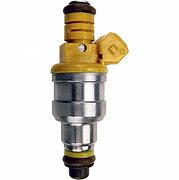Fuel injectors are one of the most important components of modern car engines. They play a crucial role in making sure that your engine runs smoothly, efficiently, and at its peak performance. But what exactly are fuel injectors, and how do they work? Let’s dive into the details and explore why these components are so essential for your vehicle.
What Are Car Fuel Injectors?
Fuel injectors are small, electronically controlled valves responsible for delivering fuel into the engine’s combustion chamber. They ensure that the right amount of fuel is injected into the engine at the correct time, providing the ideal fuel-to-air mixture for combustion. This precise control is vital for maximizing engine efficiency, performance, and reducing emissions.
How Do Car Fuel Injectors Work?
Fuel injectors are part of a vehicle’s fuel injection system, which has largely replaced carburetors in modern cars. Here’s a simplified breakdown of how they work:
- Fuel Supply: Fuel is drawn from the fuel tank through a fuel pump and delivered to the fuel injectors at high pressure.
- Electronic Control: The car’s Engine Control Unit (ECU) manages the fuel injectors. Based on factors like engine speed, throttle position, and air intake, the ECU decides how much fuel to inject and when.
- Atomization: The fuel injector sprays the fuel in a fine mist. This process, called atomization, allows the fuel to mix effectively with air, creating an ideal condition for combustion.
- Combustion: Once the fuel is injected, the mixture of air and fuel ignites in the combustion chamber, powering the engine.
This system offers precise control over fuel delivery, which enhances fuel efficiency and ensures smoother engine performance.
Types of Car Fuel Injectors
There are two main types of fuel injectors commonly found in vehicles today:
- Port Fuel Injectors (PFI): These inject fuel into the intake manifold, where it mixes with air before entering the combustion chamber. PFI systems are known for their reliability and simplicity.
- Direct Fuel Injectors: These inject fuel directly into the combustion chamber, offering better control over fuel quantity and timing. Direct injection systems are more efficient and are increasingly popular in modern vehicles.
Why Are Car Fuel Injectors Important?
Fuel injectors are essential for optimal engine performance. Without them, your engine wouldn’t receive the correct amount of fuel, leading to several issues such as poor fuel economy, reduced power, and higher emissions. Additionally, faulty or dirty fuel injectors can cause rough idling, engine misfires, or even complete engine failure in severe cases.
Signs of Faulty Car Fuel Injectors
Like any other part of your vehicle, fuel injectors can wear out over time or become clogged due to impurities in the fuel. Here are some common signs that your fuel injectors may be malfunctioning:
- Poor fuel economy: If your car is burning more fuel than usual, it could be due to inefficient fuel injection.
- Engine misfires: Clogged or failing injectors can prevent enough fuel from reaching the combustion chamber, causing engine misfires.
- Rough idling: A lumpy or uneven idle can be a sign of uneven fuel delivery from a malfunctioning injector.
- Check engine light: Many modern cars will trigger the check engine light if there’s an issue with the fuel injectors.
- Reduced engine power: A faulty injector can limit your engine’s power output by not delivering the necessary fuel.
Maintenance Tips for Car Fuel Injectors
To keep your fuel injectors working properly, it’s important to follow regular maintenance routines. Here are a few tips to help you:
- Use high-quality fuel: Premium fuel can reduce the likelihood of impurities and deposits that may clog your injectors.
- Fuel injector cleaning: Periodically use a fuel injector cleaner additive or have a mechanic professionally clean your injectors to prevent clogging.
- Regular servicing: Ensure your car’s fuel system is inspected during regular services. This will help spot any issues early before they lead to major problems.
Car fuel injectors are vital to the smooth running and efficiency of your car’s engine. They ensure that the right amount of fuel is delivered at the right time, optimizing performance and fuel economy. By understanding how they work and keeping them well-maintained, you can prevent potential engine problems and enjoy better driving performance for years to come.

